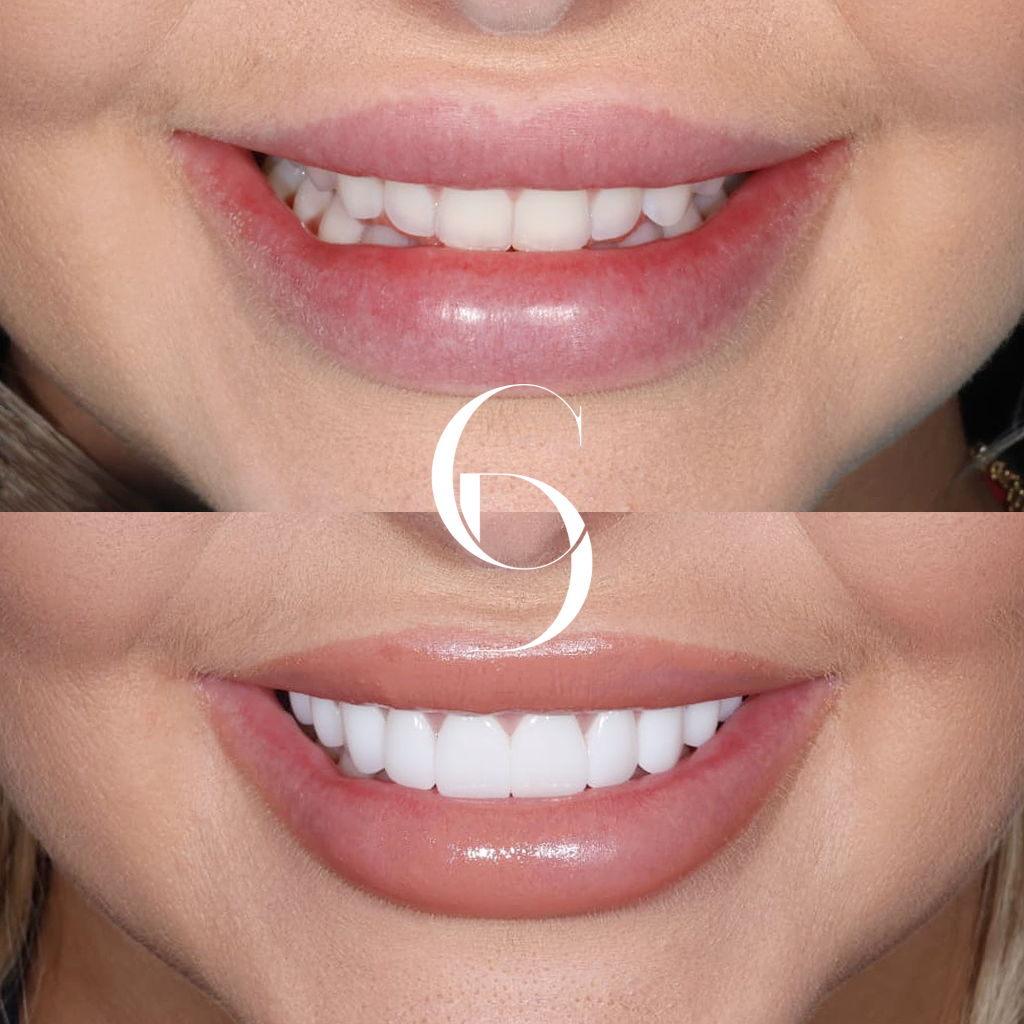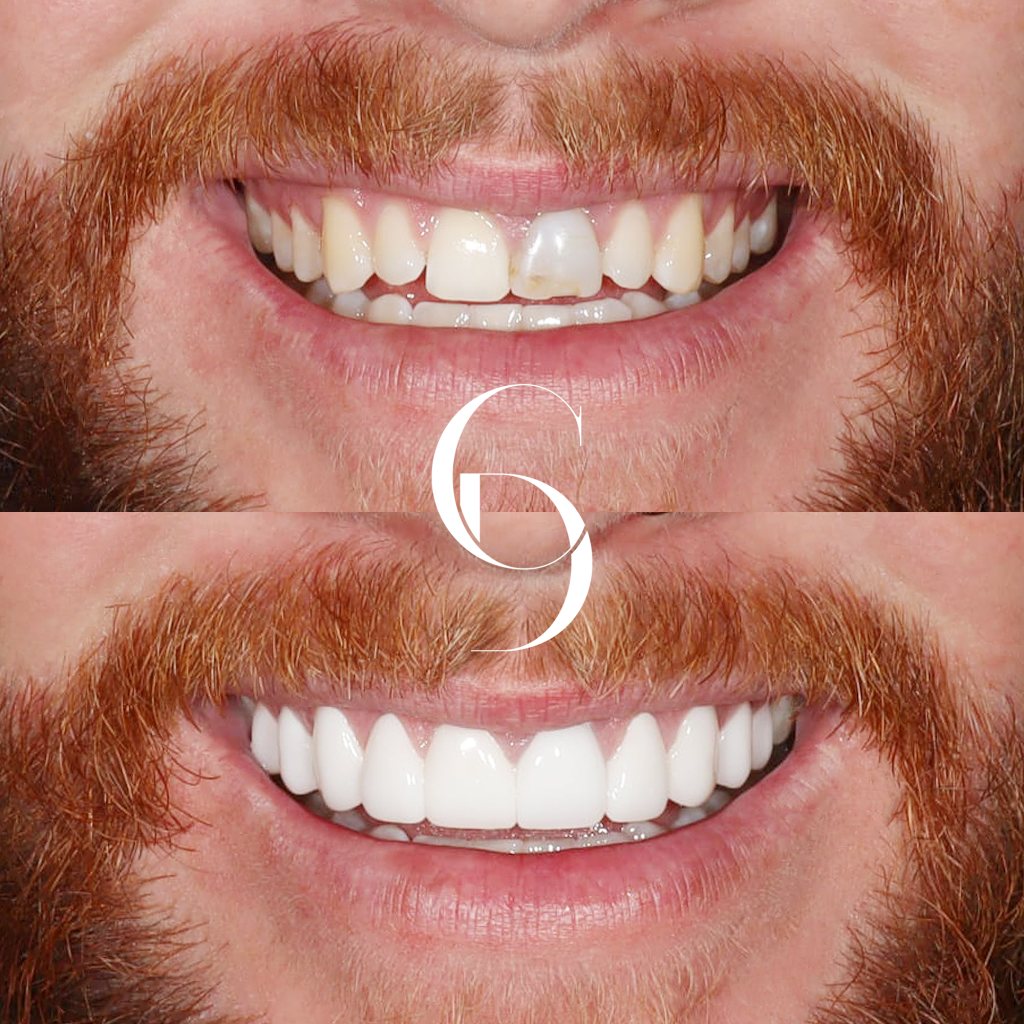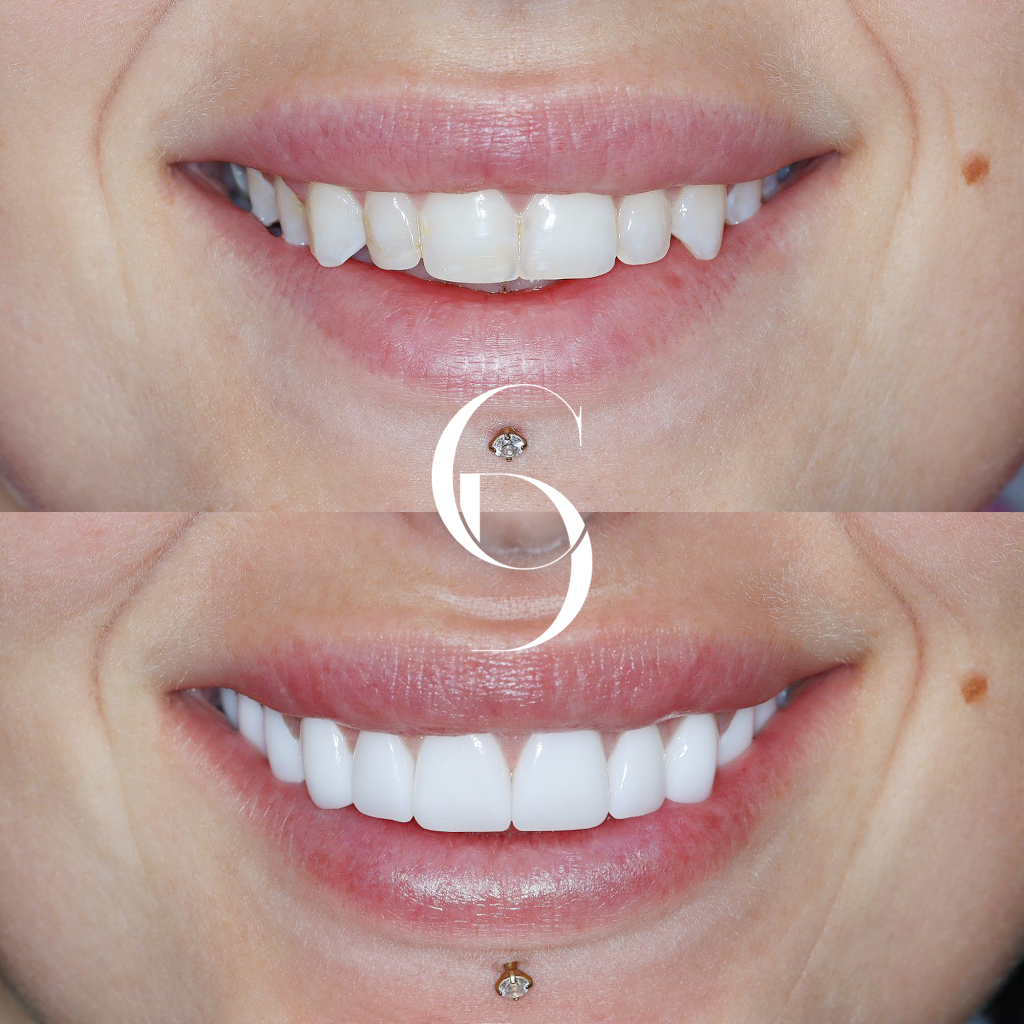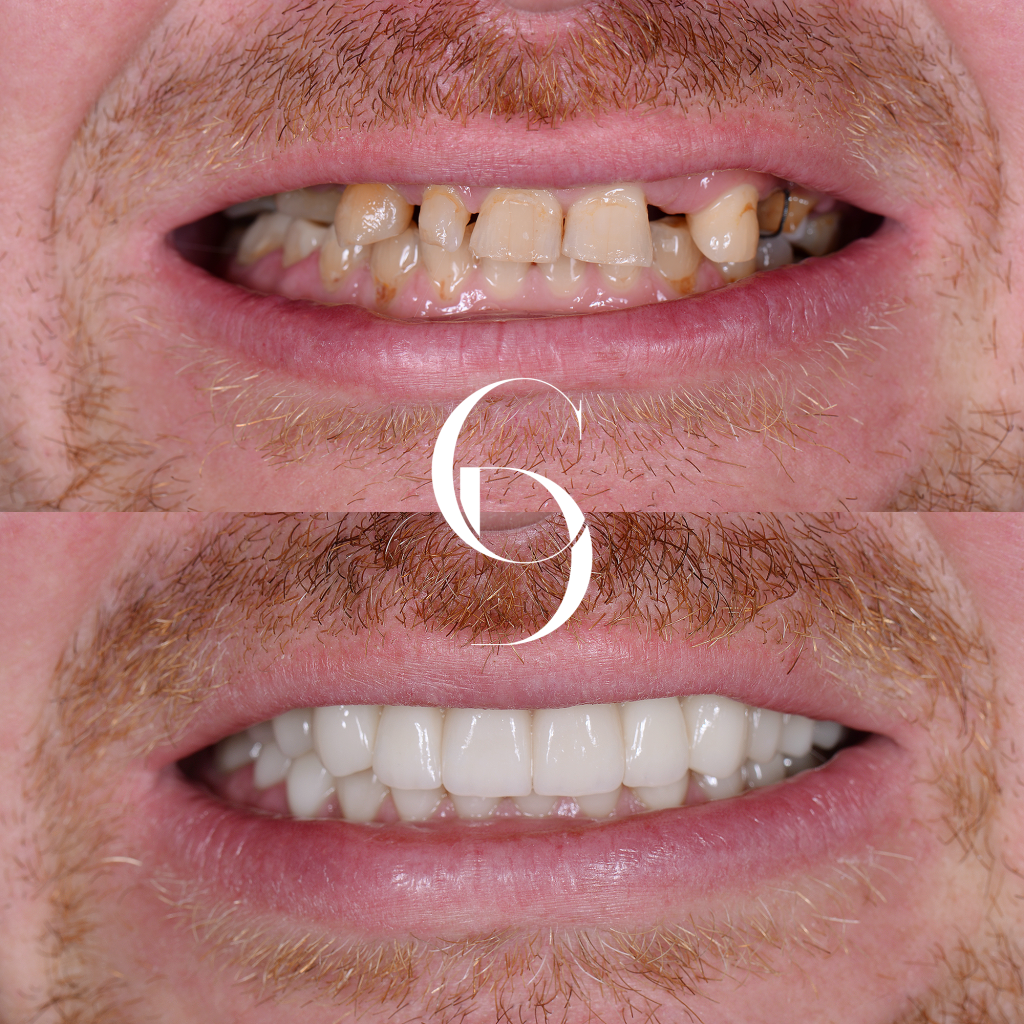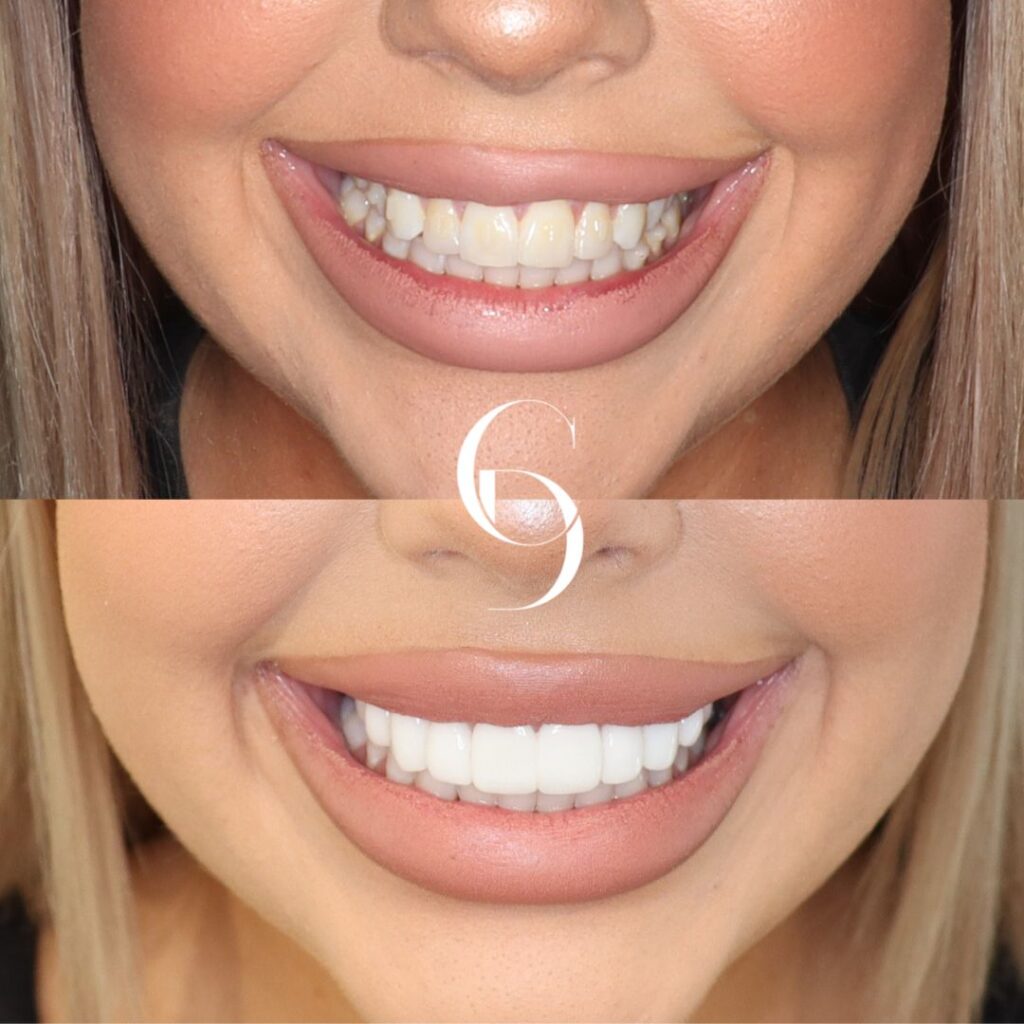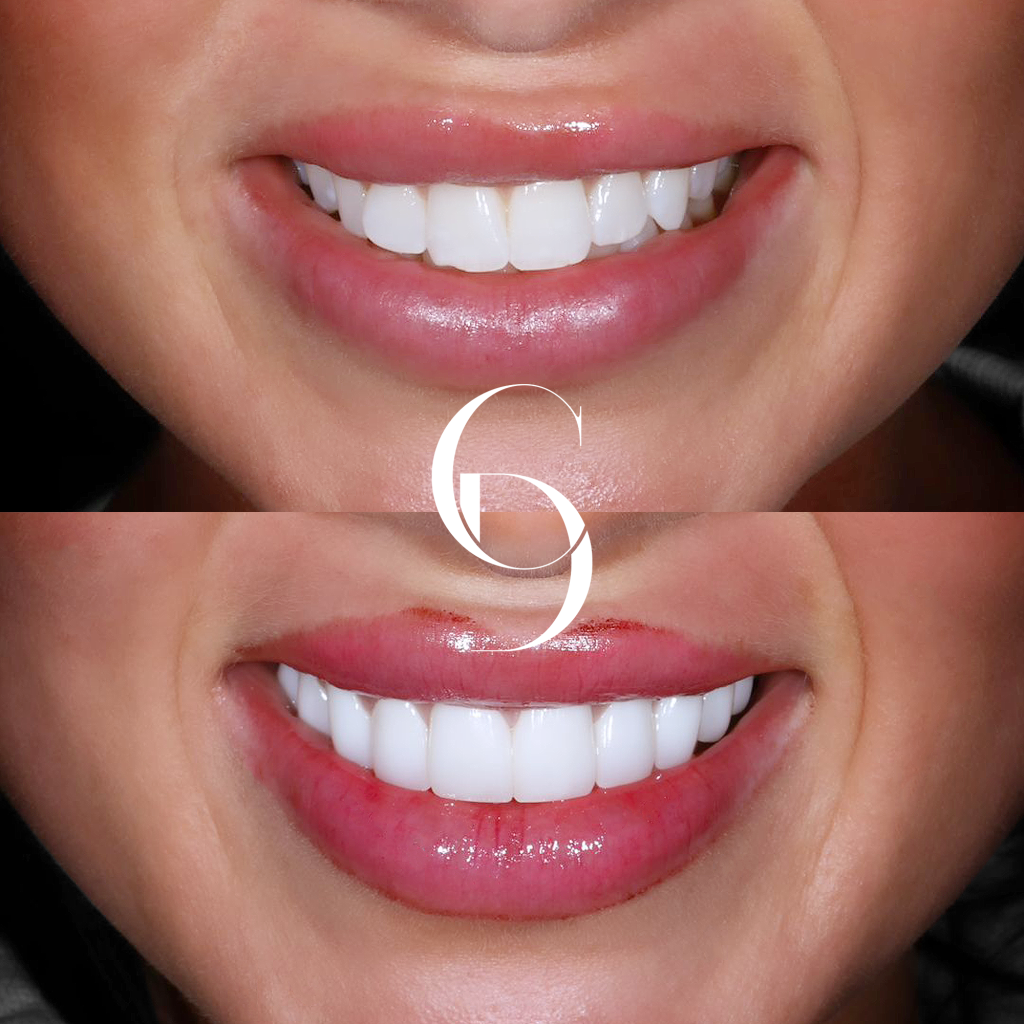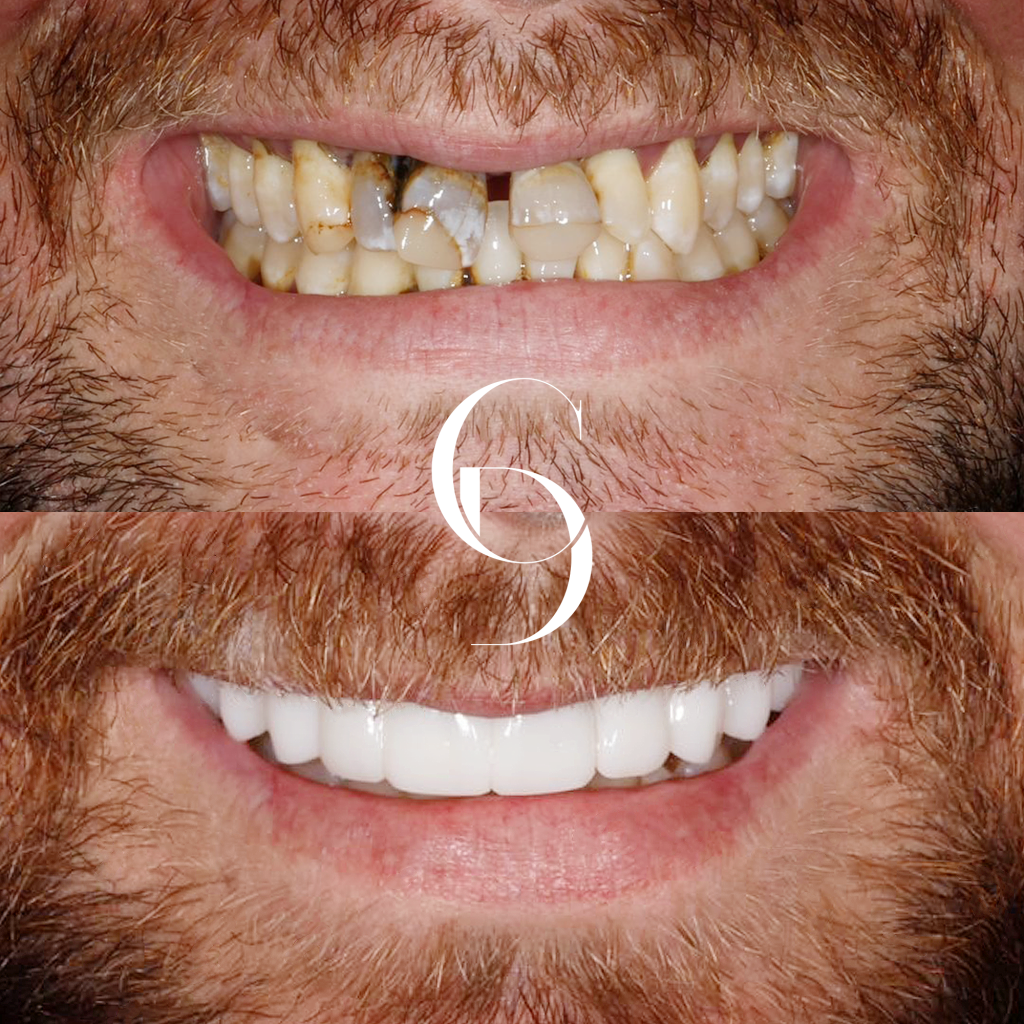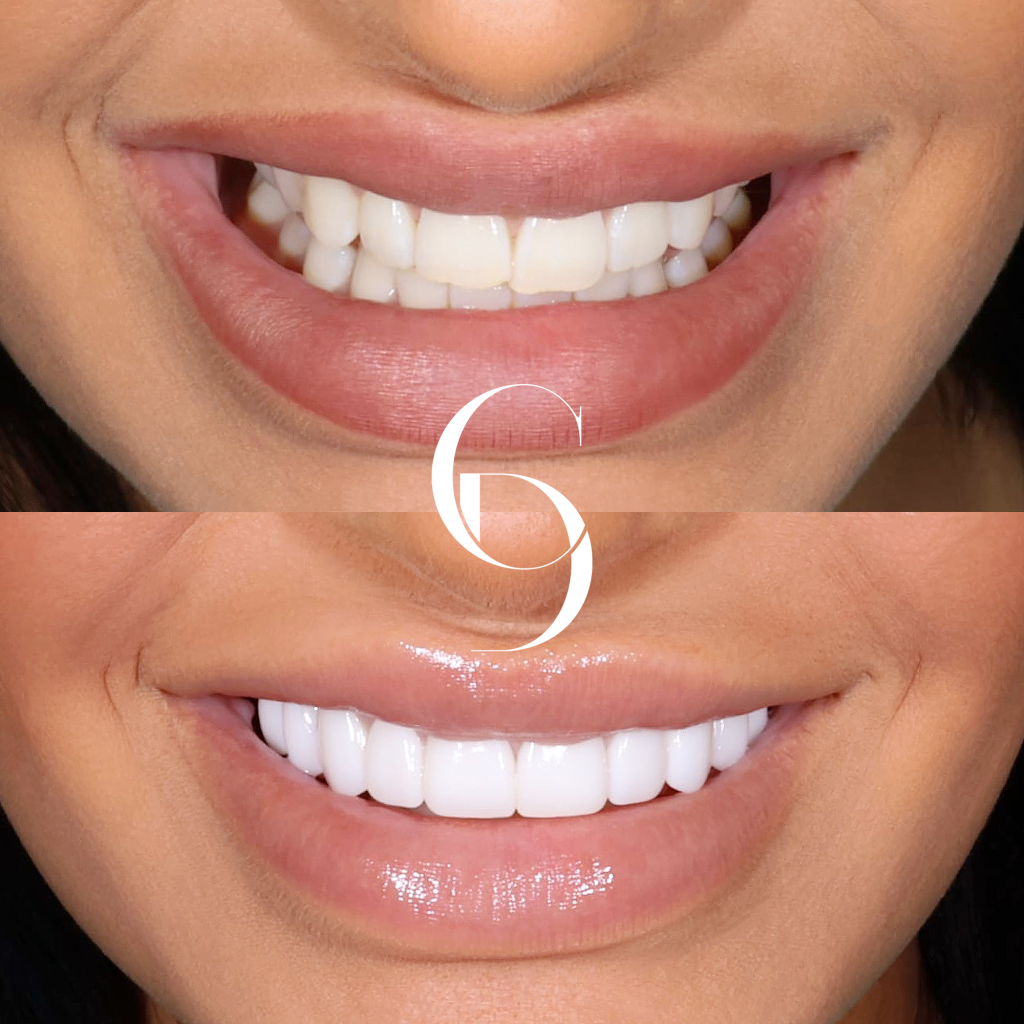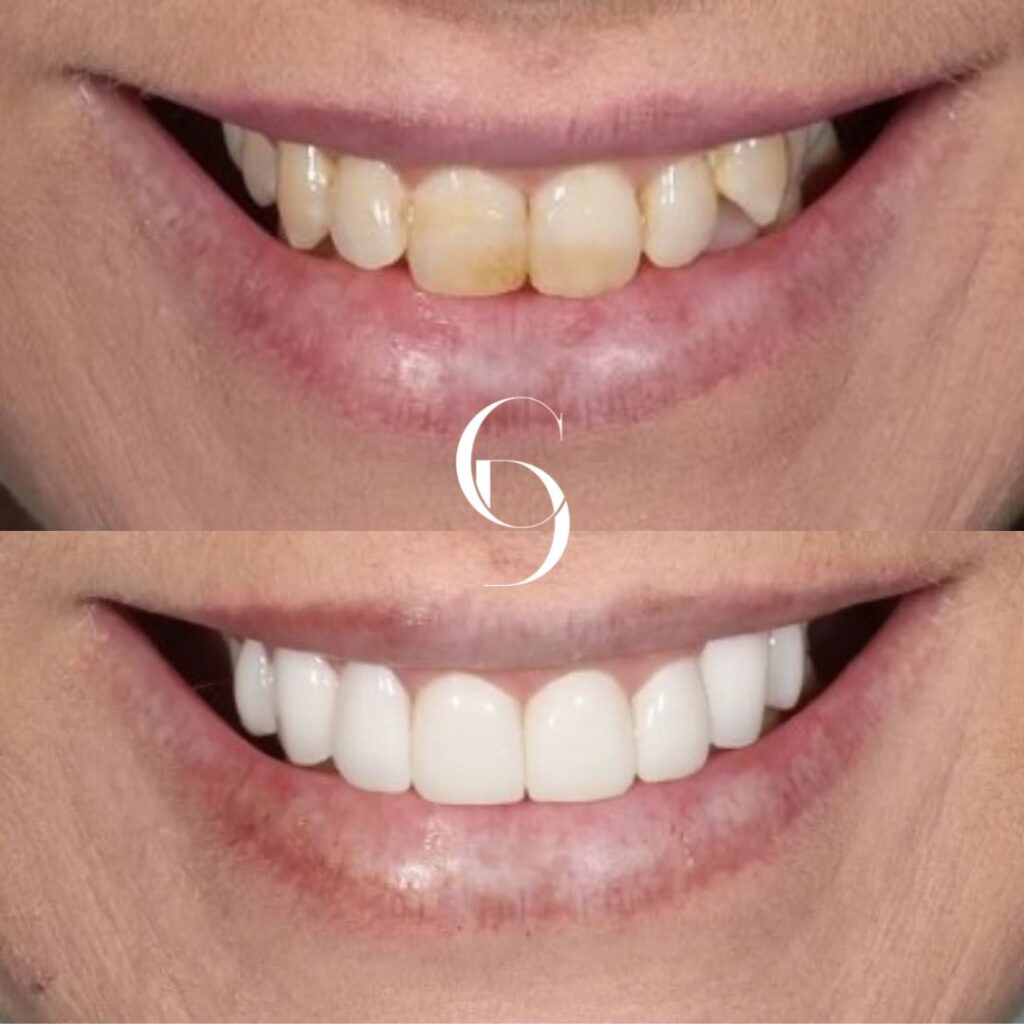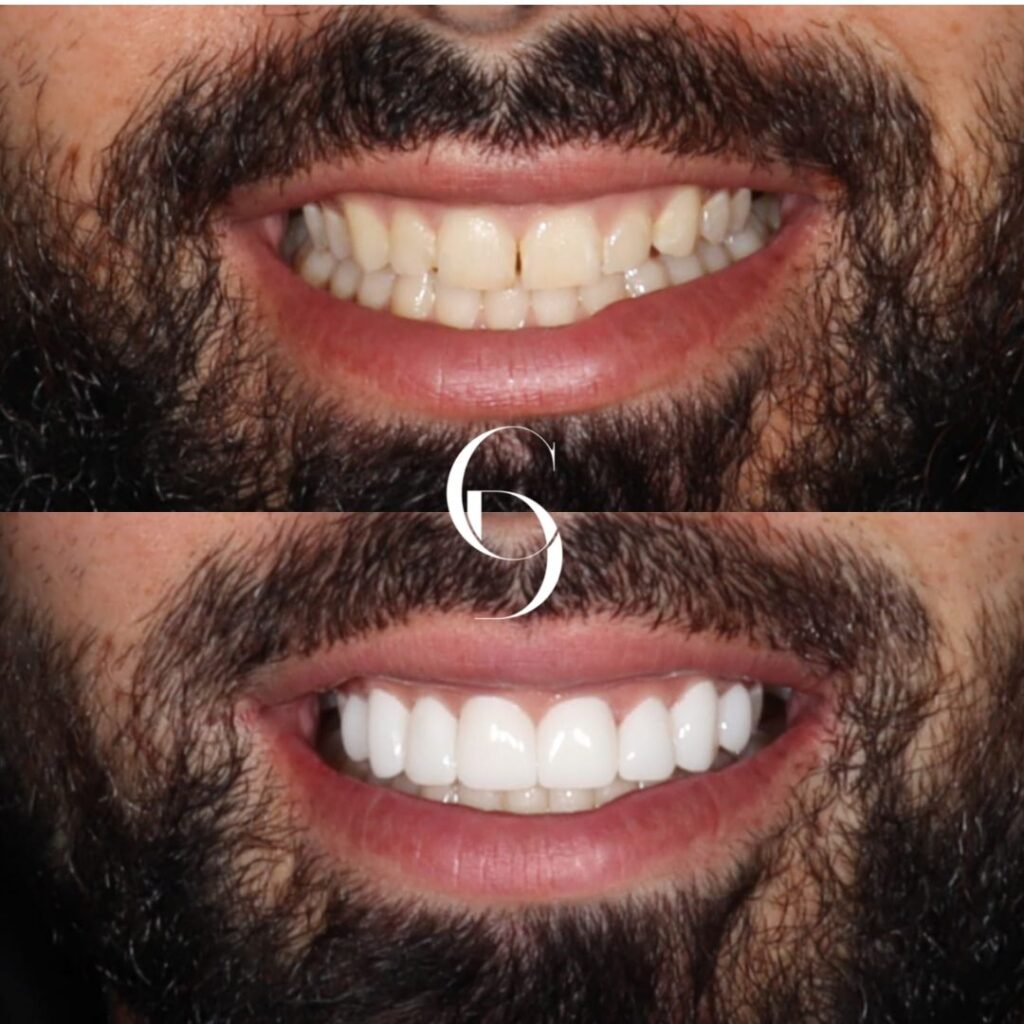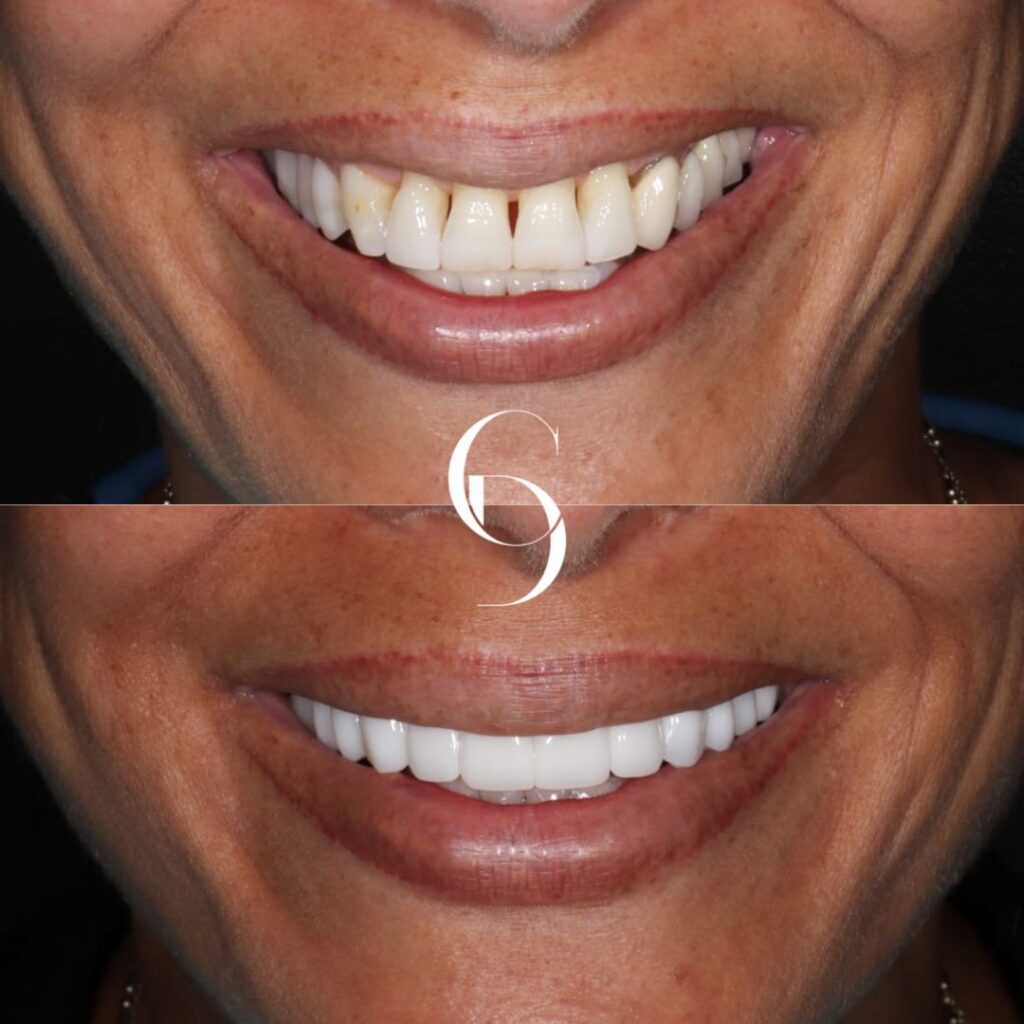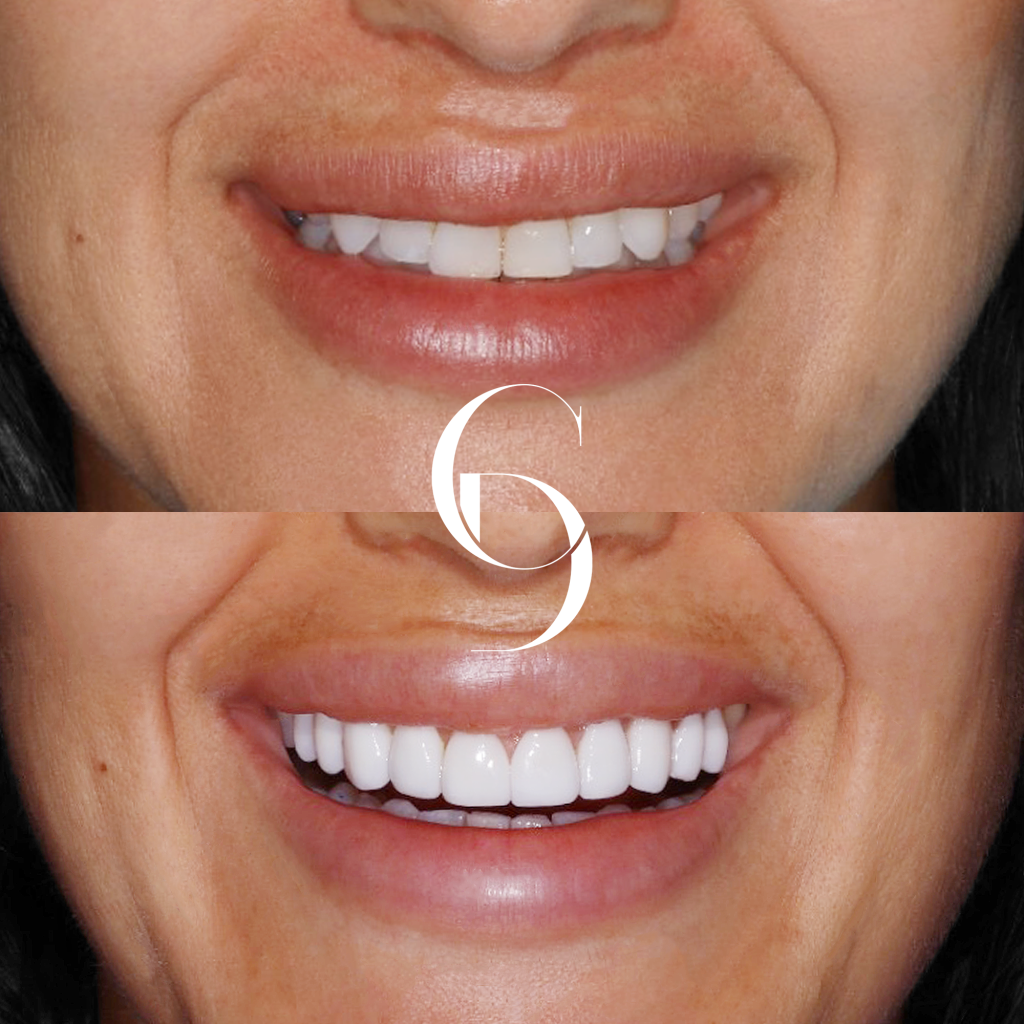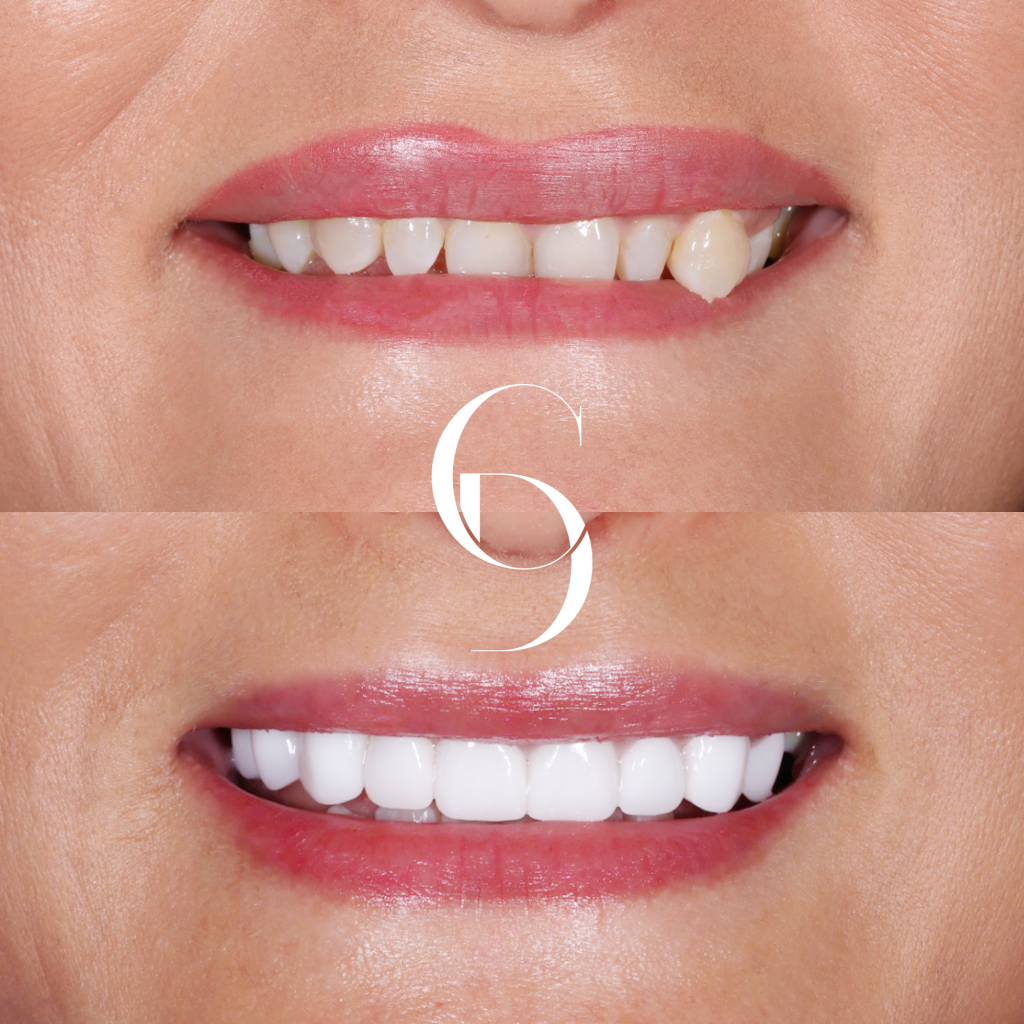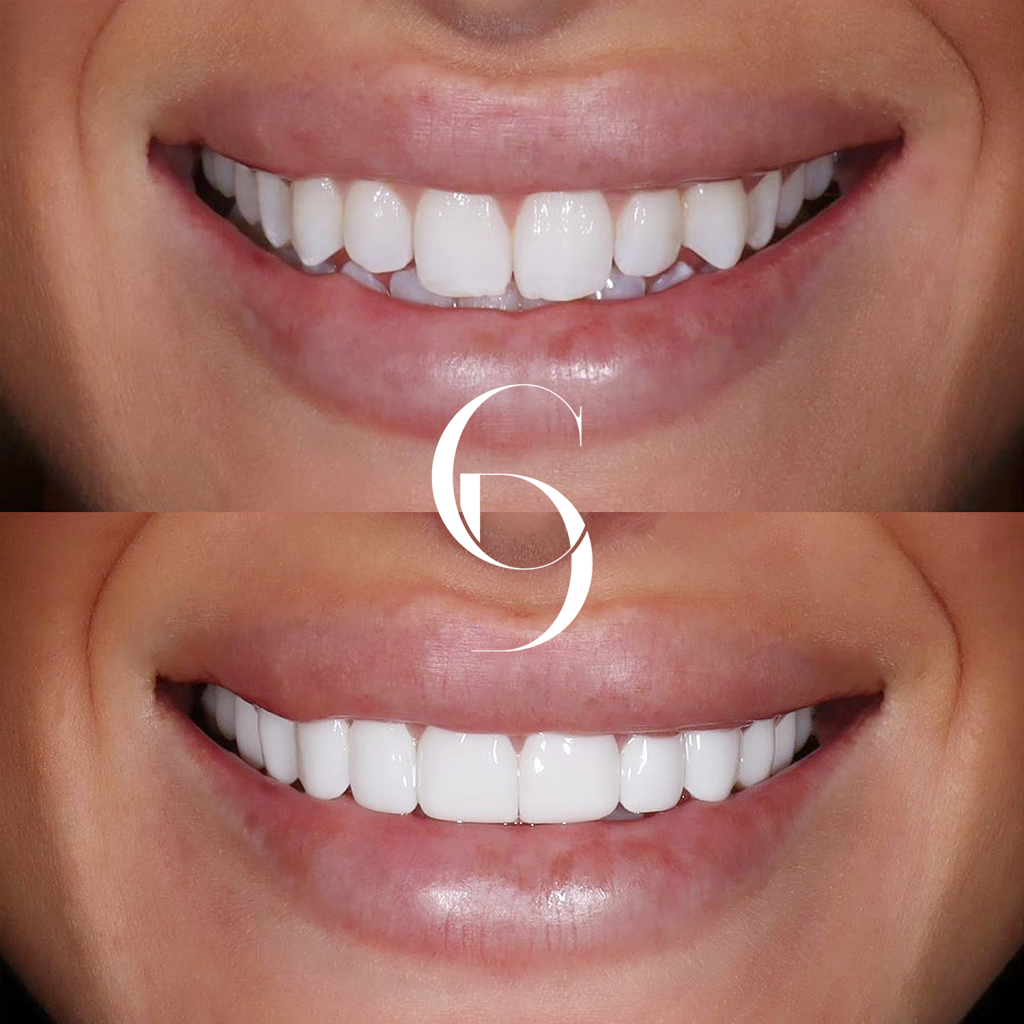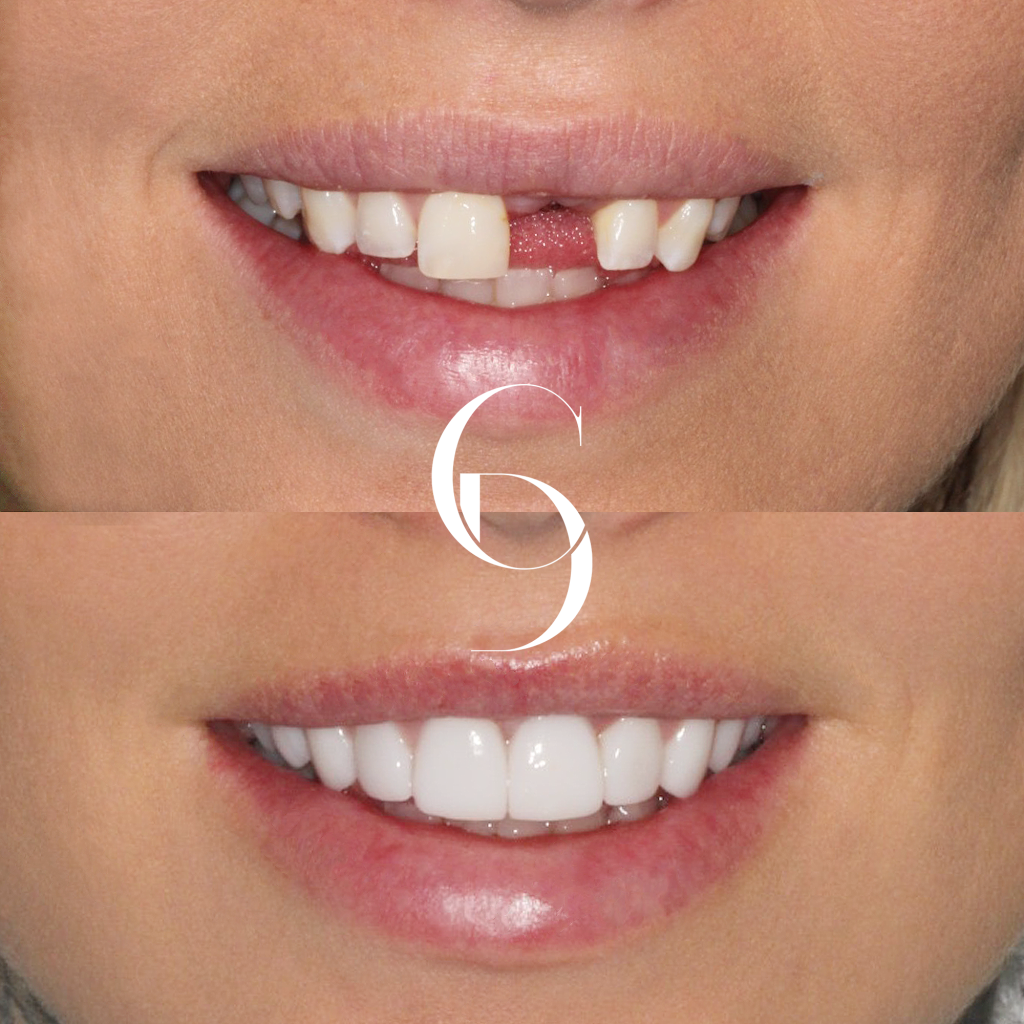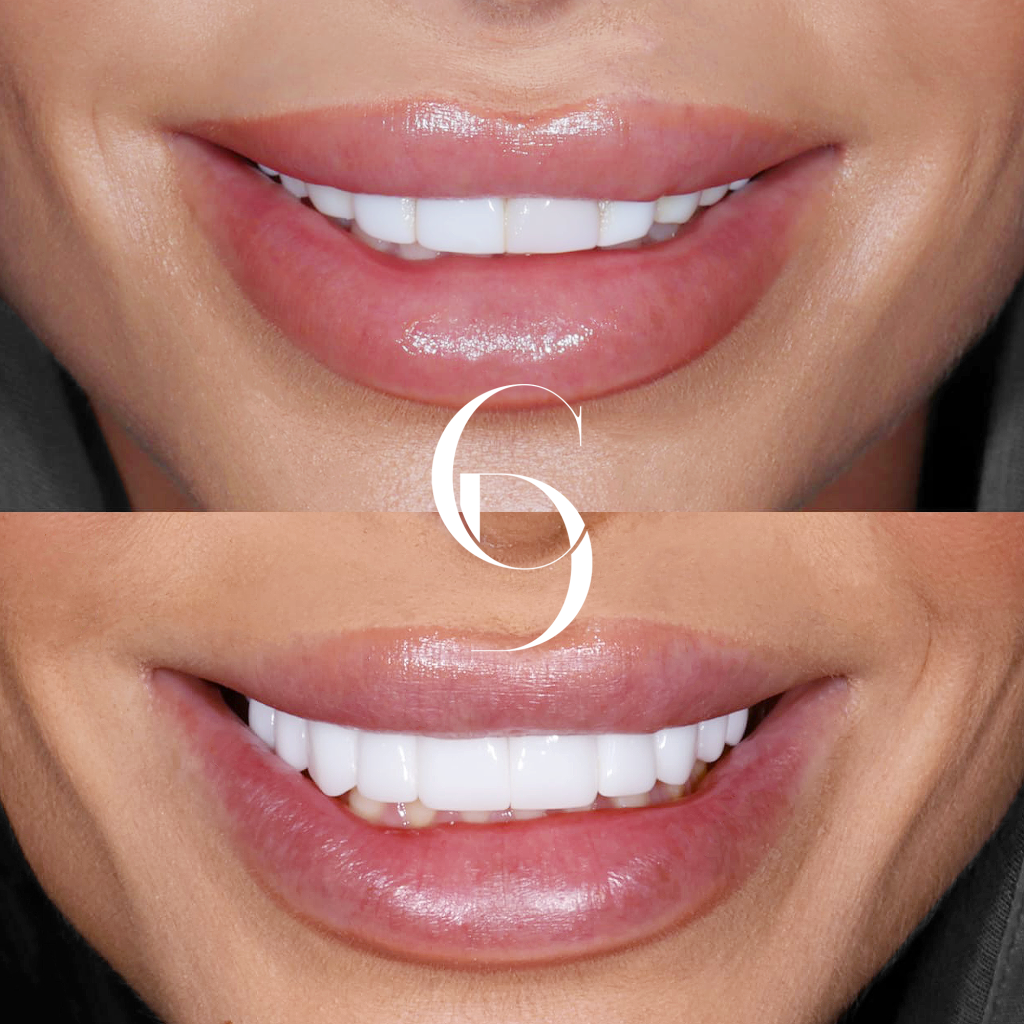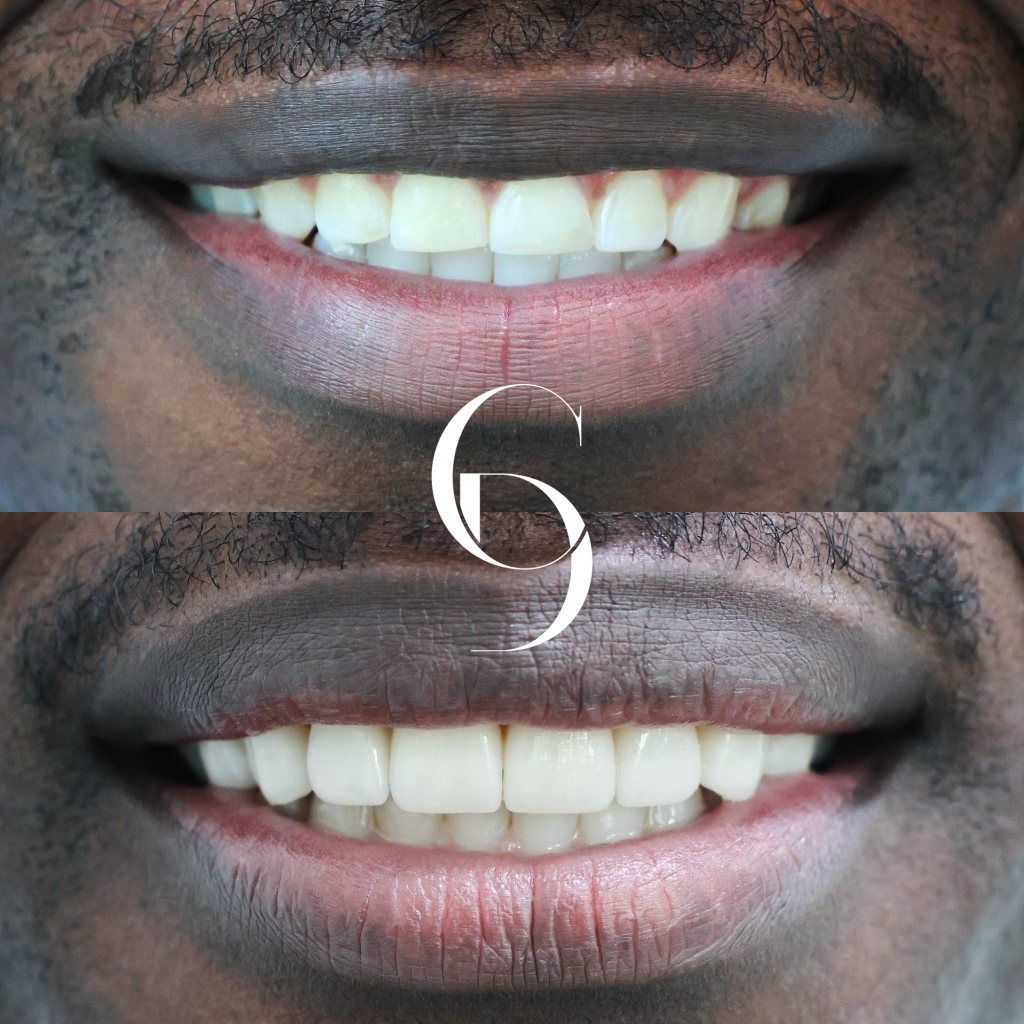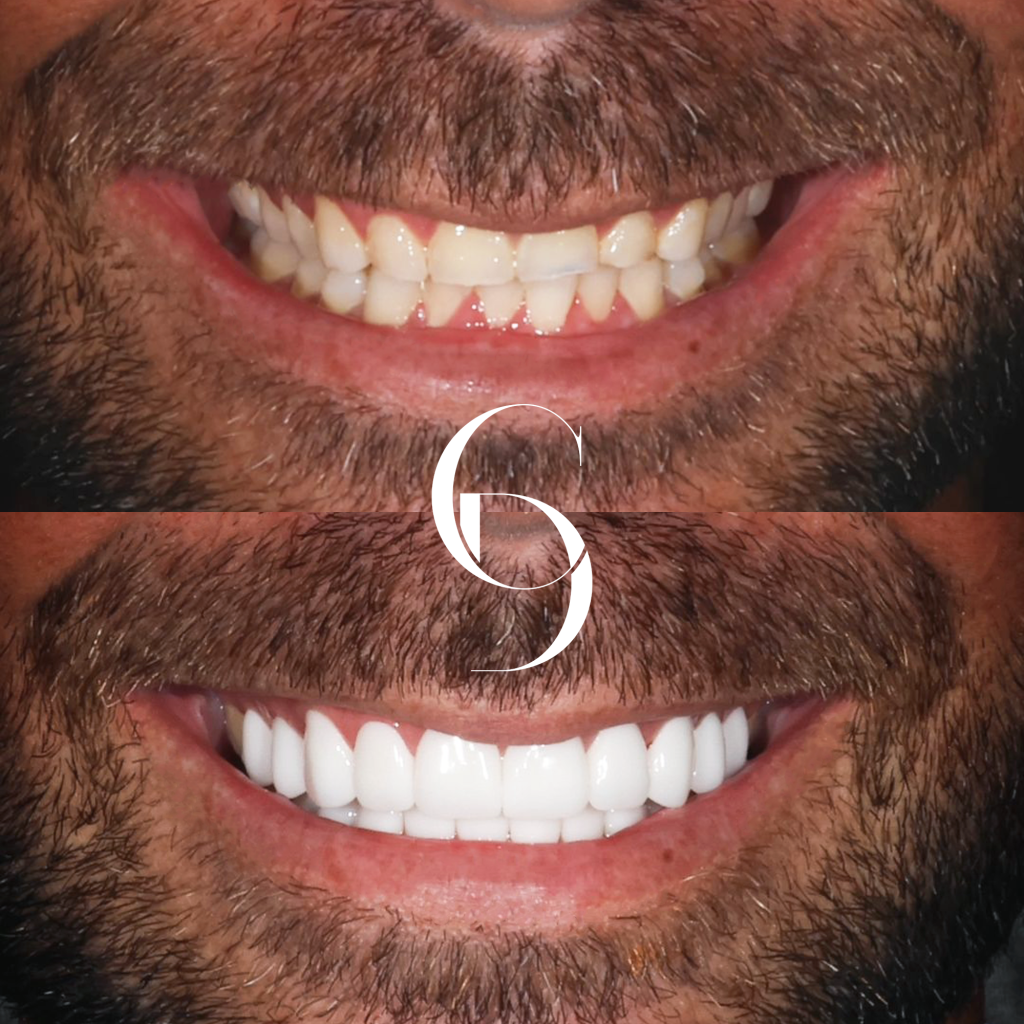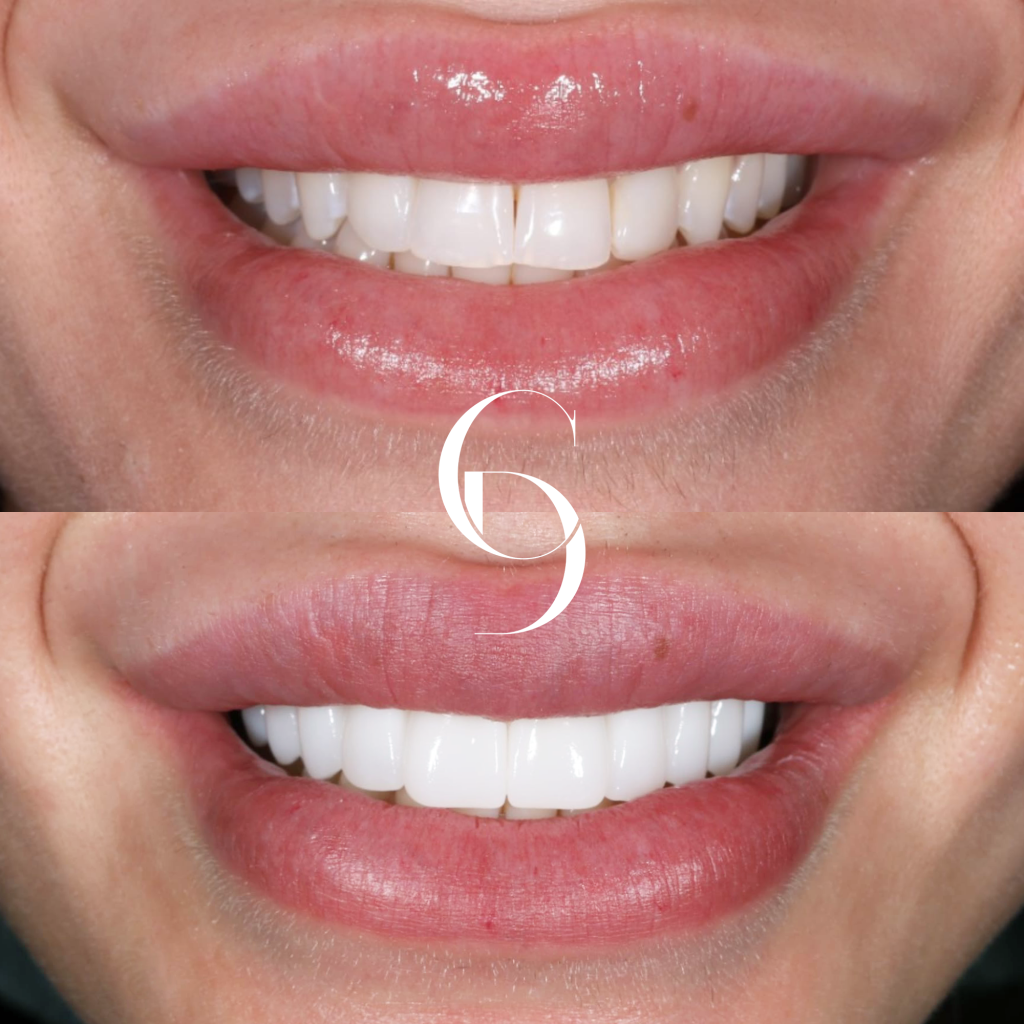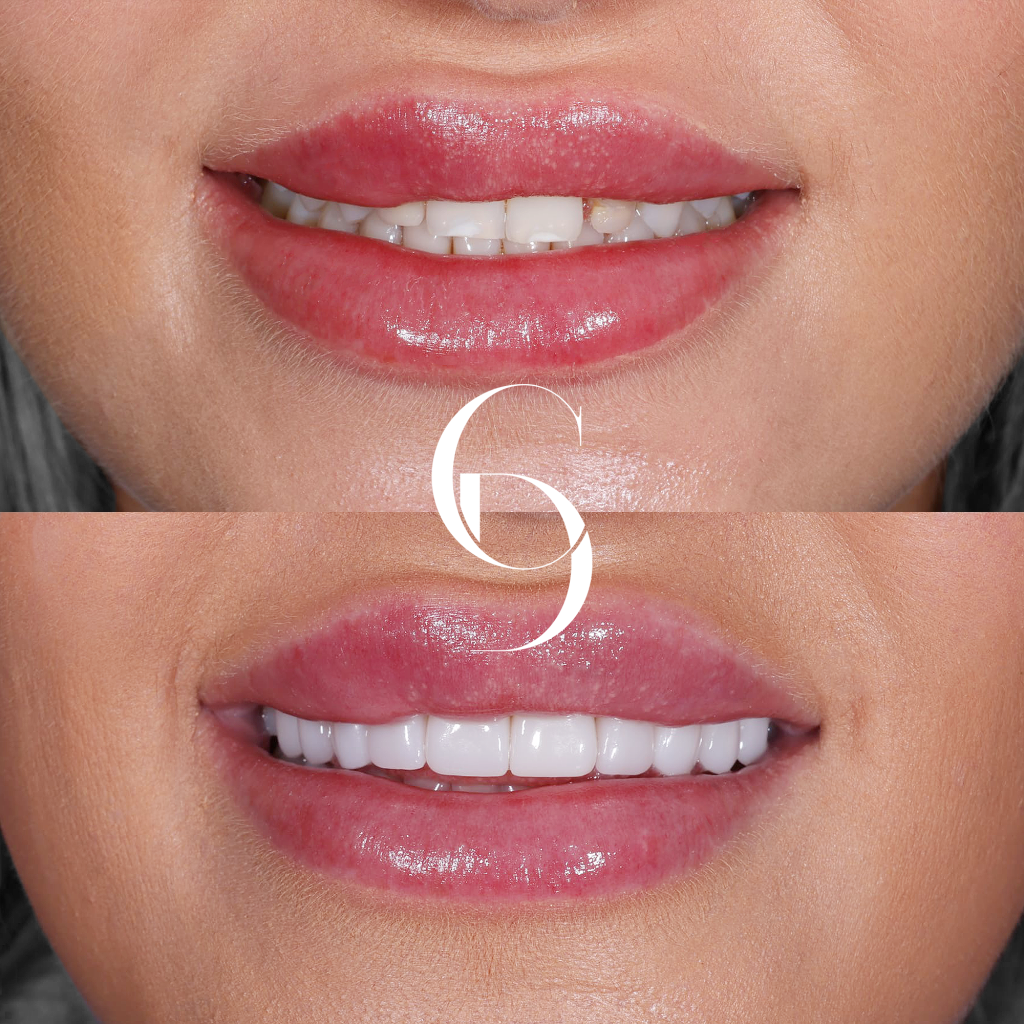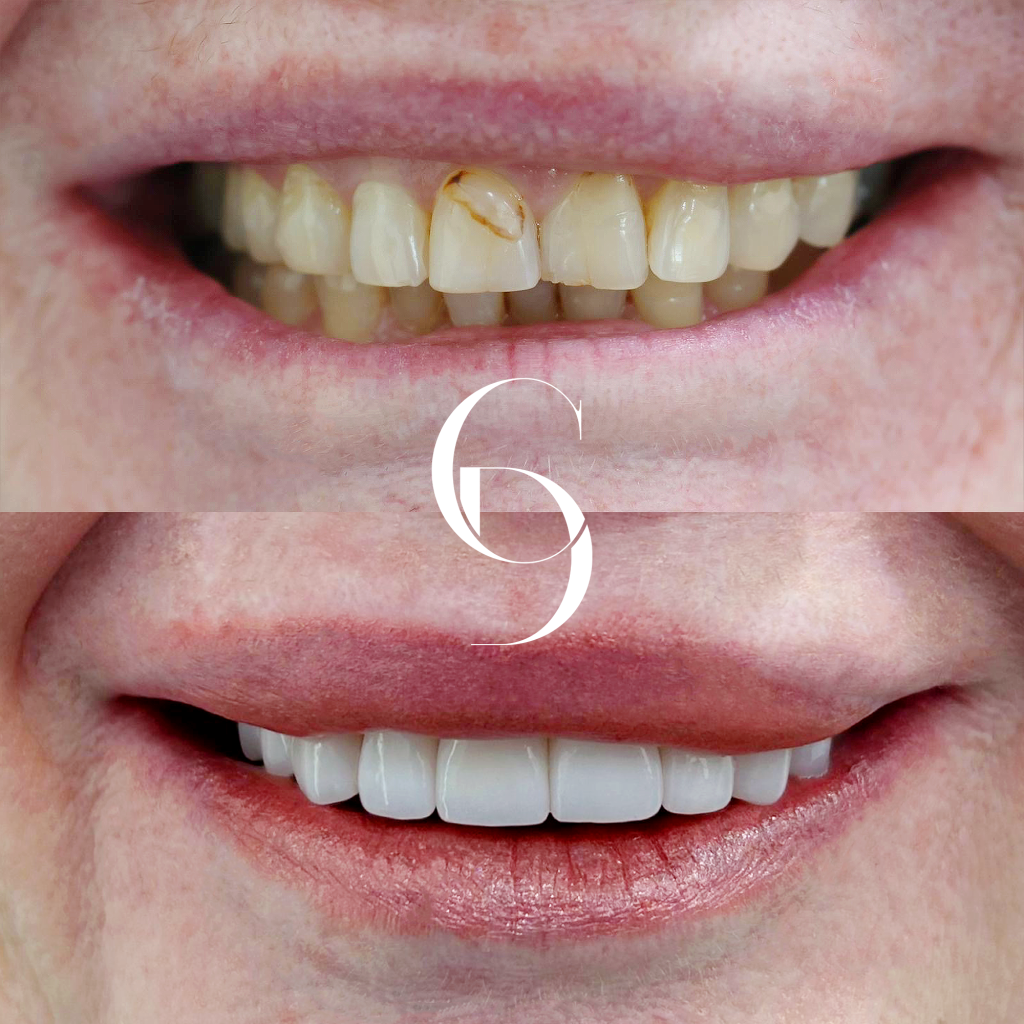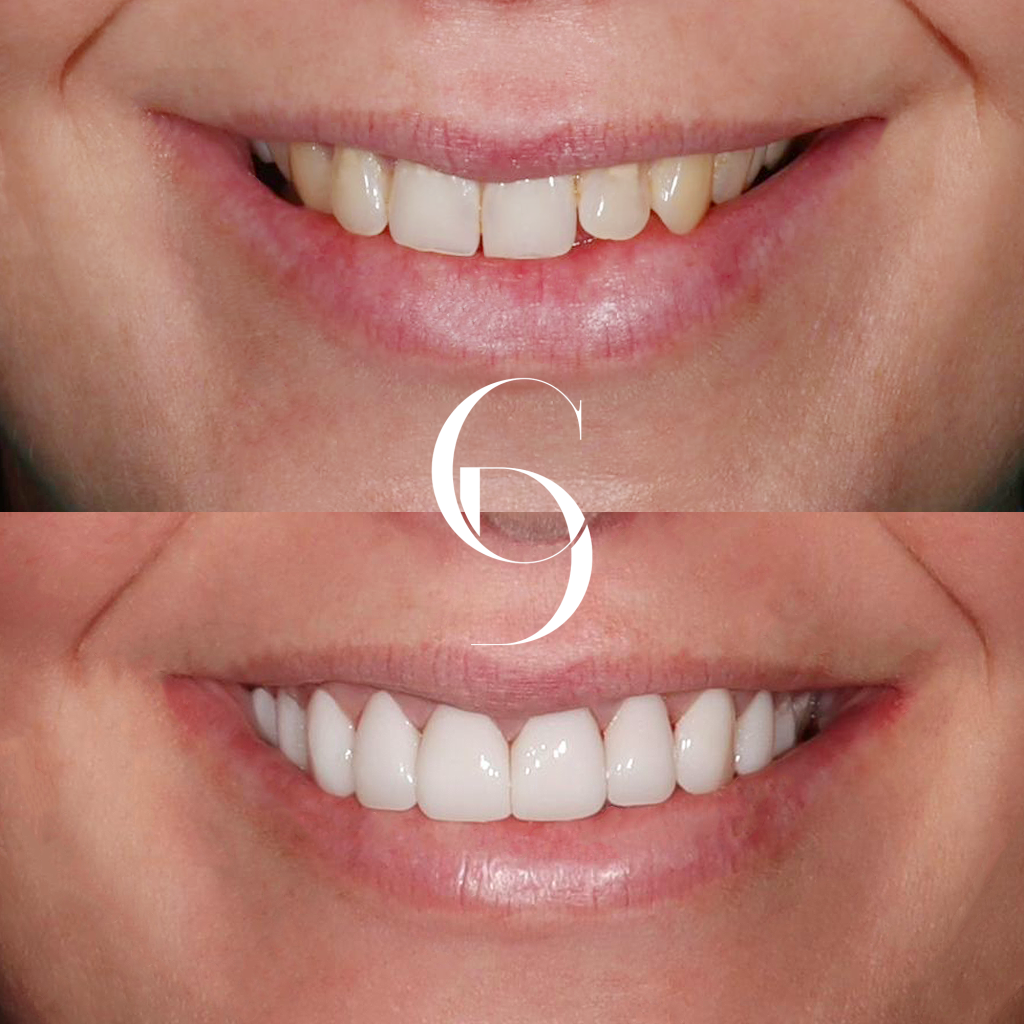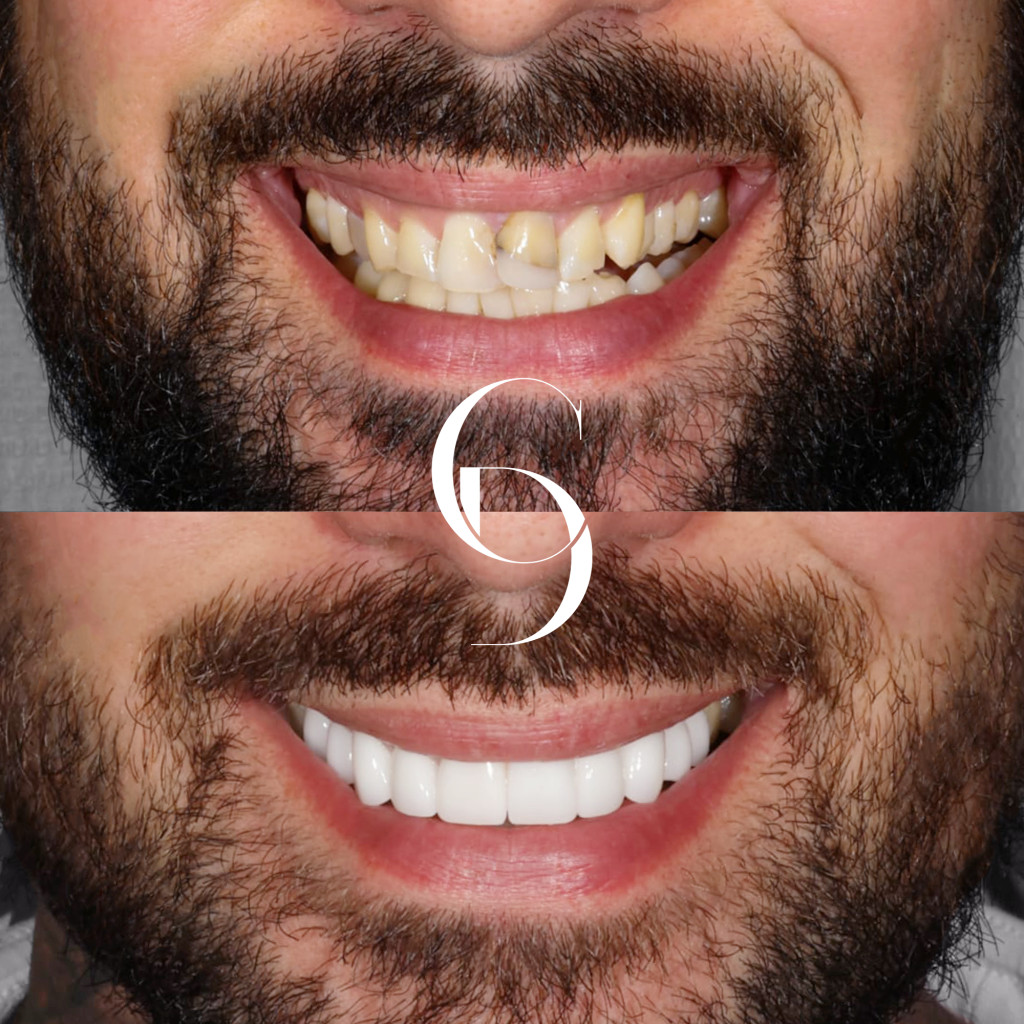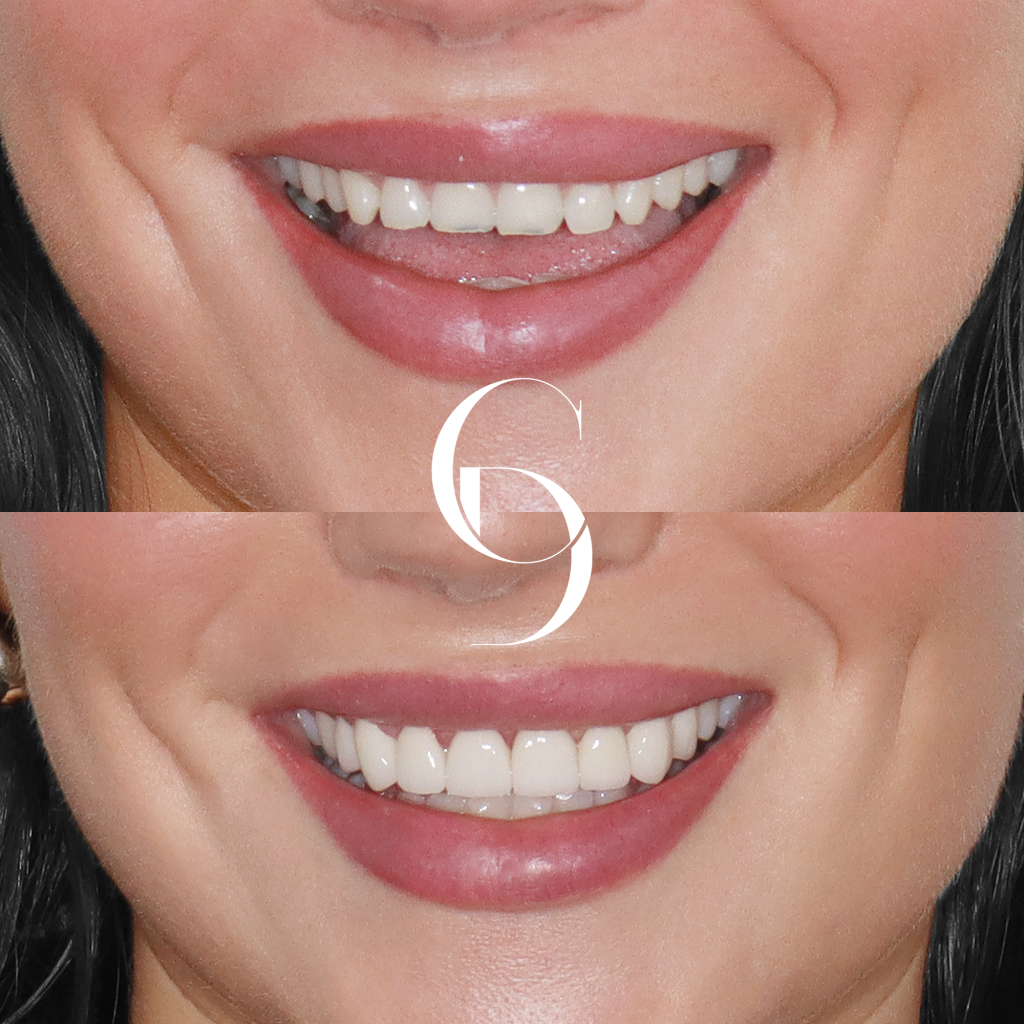Aligned teeth are often associated with aesthetic perfection; however, their significance extends beyond looks. Your bite functionality, gum disease risk, oral hygiene, and many other factors are influenced by the right alignment. Braces are considered the most reliable option to achieve this, but they do not guarantee flawless results, which is ultimately dissatisfying. Then enters dental veneers – a compelling and often overlooked alternative to braces, offering an even and uniform dental alignment along with a new sense of confidence. Let us get into the world of veneers as the optimal solution for achieving perfectly straight teeth.
What are veneers?
Veneers are thin, custom-made shells typically crafted from porcelain or composite resin that are designed to cover the front surface of teeth. Veneers help in achieving the appearance of straight teeth by covering and altering the shape of the natural teeth. By addressing minor gaps, unevenness, and other imperfections, veneers contribute to a more symmetrical and harmonious smile, enhancing the impression of dental alignment.
Health Benefits of Having Straight Teeth With Veneers
Reduced Risk of Cavities and Gum Problems
Misaligned teeth create small gaps, breeding grounds for plaque and bacteria. These hard-to-reach areas make brushing and flossing less effective, increasing the risk of cavities and gum disease. With a straight, smoother, and more uniform dental surface, veneers improve oral hygiene and decrease susceptibility to decay and gum problems.
Improved Speech
Uneven teeth lead to difficulties pronouncing certain sounds, affecting speech clarity. Thus, raising the need for teeth adjustment and straightening through veneers helps in rectifying these speech impediments, allowing for better enunciation and clearer communication.
Effortless Chewing
Veneers provide a reliable solution to problems like crooked teeth that can make chewing a cumbersome task. It works by properly coordinating teeth, allowing smoother and more natural chewing motions. This makes the eating experience more enjoyable and minimizes the risk of jaw-related issues.
Improved Digestion
The process of digestion begins in the mouth, where mechanical breakdown through chewing is essential for proper nutrient absorption. Uneven teeth disrupt this initial stage of digestion, leading to larger food particles entering the digestive system. By achieving a straight dental sequence through veneers, the chewing process becomes more efficient, aiding in proper digestion and nutrient absorption.
Simplified Cleaning Routine
Maintaining oral hygiene becomes much simpler when teeth are properly arranged. Straight teeth facilitate easier brushing and flossing, enabling individuals to access all areas of their mouth effectively. Unlike irregular teeth, which hide pockets of plaque and food particles, veneers create a uniform surface that reduces the risk of plaque buildup and makes regular cleaning more productive.
Reduced Risk of Teeth Injury
Misaligned teeth are more vulnerable to accidental injuries, especially during physical activities or accidents. Dental veneers help position teeth and reduce their exposure, lowering the chances of chipping, cracking, or breaking due to impact. This preventive measure saves individuals from pain, costly dental treatments, and the potential need for emergency interventions.
Reduced Neck and Head Pain
Dental veneers offer a solution to the challenges posed by irregular teeth, which can result in incorrect jaw positioning and muscular tension. This tension often leads to persistent discomfort in the neck and head area, causing headaches, neck pain, or even facial strain.
Boosted Self-Confidence
The aesthetic improvements brought about by dental veneers extend beyond physical appearance. A straight, symmetrical smile profoundly impacts one’s self-esteem and confidence. When individuals feel good about their smiles, they’re more likely to engage socially, present themselves confidently, and experience an overall enhanced sense of self-worth.
Reduced Tooth Wear
Uneven teeth wear out faster due to the impact of biting and grinding patterns. Conversely, having straight teeth distributes biting forces evenly, decreasing the risk of excessive wear on specific teeth. This placement reduces the potential for dental complications such as chipping and cracking, preserving the integrity of teeth and enhancing long-term dental health.
Long-Term Financial Savings
Investing in veneers to achieve properly ordered teeth provides substantial long-term financial benefits. Addressing the problem early prevents the need for more extensive and costly dental procedures later on. This proactive approach saves money and avoids the discomfort and potential complications associated with untreated misplacement, making it a prudent choice for dental health and financial well-being.
Since you understand the benefits of even teeth but are confused about which veneer is best for you, here is a quick guide to help you select.
Types of Veneers
Permanent Veneers
Porcelain Veneers:
Durable, stain-resistant shells crafted to mimic natural teeth offer a long-lasting cosmetic enhancement solution with minimal maintenance.
Composite Veneers:
Cost-effective, directly applied, tooth-colored composite restorations provide a quick solution for smile improvement, though they require more frequent replacement.
Temporary Veneers
Made from acrylic or composite resin, the temporary veneers are worn for about 1 to 3 weeks on average, depending on the individual treatment plan and the time required to craft the permanent veneers.
Wrapping Up
In conclusion, achieving perfectly straight teeth is possible with dental veneers, an often overlooked yet remarkable solution. Their capacity to correct misalignments, elevate self-confidence, and promote oral hygiene solidifies veneers as an innovative dental option.

